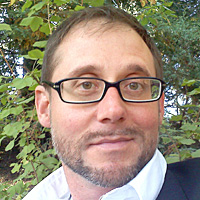It was freezing cold that night, in the late 1920s, when Elizabeth Crozer Campbell found herself trapped in a mudpit, on the edge of the Mojave Desert, her husband running to get help. The two had been bitten by the archaeology bug, and had been searching out Native American archaeological sites, when she had gotten hopelessly stuck.
Her husband, William, had to hike out 11 miles, flag down a train, and take it into town to get help. She was freed the next day, and went on to write some of the earliest archaeological studies of the southwestern deserts, studies which still to this day inform modern archaeologists like myself. She was self-taught, strong-willed and incredibly smart, and her notes and publications teem with the excitement of discovery.
I wish we, as a nation, had this curiosity and love of exploring, science, and discovery that the Campbells had. Certainly my three-year-old embodies this sense of adventure. All kids are scientists, testing their theories, experimenting, discussing their results with anyone that will listen. This love of science isn't making it to adulthood.
A 2009 study by the Pew Forum on Religion and Public Life found that only 32 percent of Americans thought that evolution was the result of natural processes. Our lack of basic scienctific knowledge affects our political elections, scientific funding, education and laws.
We should be providing more opportunities for the public to be involved in our research. And I'm not just talking about kids, I want adults to participate. Where are our Exploratoriums for adults? I work a lot with families doing archaeological field research, and I remember one parent telling me that they loved the opportunity, because they spend so much time watching their kids, like sports or theater, and not doing something with their kids, particularly something intellectual.
